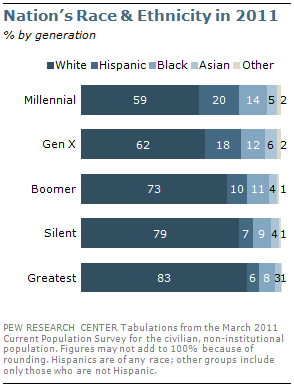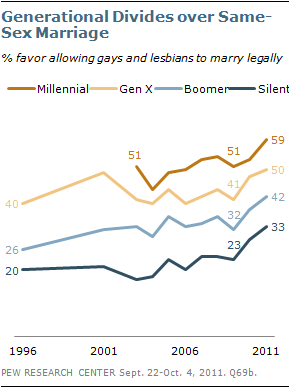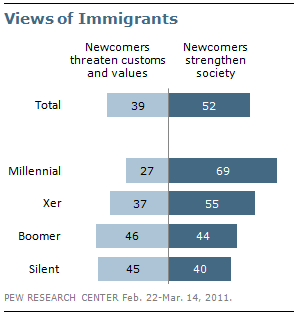One Comic Shows the Differences Among Generations

By:
The author George Orwell once observed that "[each] generation imagines itself to be more intelligent than the one that went before it, and wiser than the one that comes after it." Political and cultural differences lead to generational disagreements — between parents and their kids, college students and their elders — but such divides tend to be overstated, as this comic humorously suggested.
.jpg=s750x1300.jpg?auto=format&crop=faces&fit=crop&q=60&w=736&ixlib=js-1.1.0) Wrong Hands - wronghands1.com
Wrong Hands - wronghands1.com
Illustrator John Atkinson poked fun at the divisive rhetoric among Baby Boomers, Gen X, and Millennials by plotting their defining characteristics along a series of timelines. The overarching theme is that each generation tends to romanticize or exaggerate the importance of their era. For Boomers, that was the '60s; for Gen X, that was a five-year span in the '90s; for Millennials, that time is now, or the era of the iPhone.
For all of the bickering and "back-in-my-day" that ostensibly divide us, the truth is the relative greatness of each generation is totally subjective. What's not subjective, however, are the ideological and demographic differences that define generations, as revealed by polling.
What really drives debates among age brackets?
Each generation has become more ethnically diverse, with Millennials the most diverse, the Pew Research Center found. Millennials vote Democrat more and are also more open to social phenomena such as gay marriage and immigration. Almost 70 percent of Millennials feel that immigrants strengthen the U.S., compared to 55 percent of Gen X and 44 percent of Boomers.
Ethnicity
 Pew Research Center - people-press.org
Pew Research Center - people-press.org
Same-sex marriage
 Pew Research Center - people-press.org
Pew Research Center - people-press.org
Immigration
 Pew Research Center - people-press.org
Pew Research Center - people-press.org
"While the political divides between young and old are deep, there are potential fissures at both ends of the age spectrum," Pew reported.
